GEMA AI study predicts a 30% drop in sales for producers by 2028
The impact of AI in the music sector.
GEMA, combined with its French counterpart SACEM, has conducted a study on the expected economic impact of AI, with astounding results.
According to the study, by 2028, the presence of AI-generated music in the market could result in as much as a 30 percent drop in sales.
GEMA AI Study: What do the numbers reveal?
The survey covered around 15,000 songwriters and publishers who are current GEMA and SACEM members. Besides an analysis of the state of the current market, 16 experts were interviewed by Berlin media consulting firm, Goldmedia.
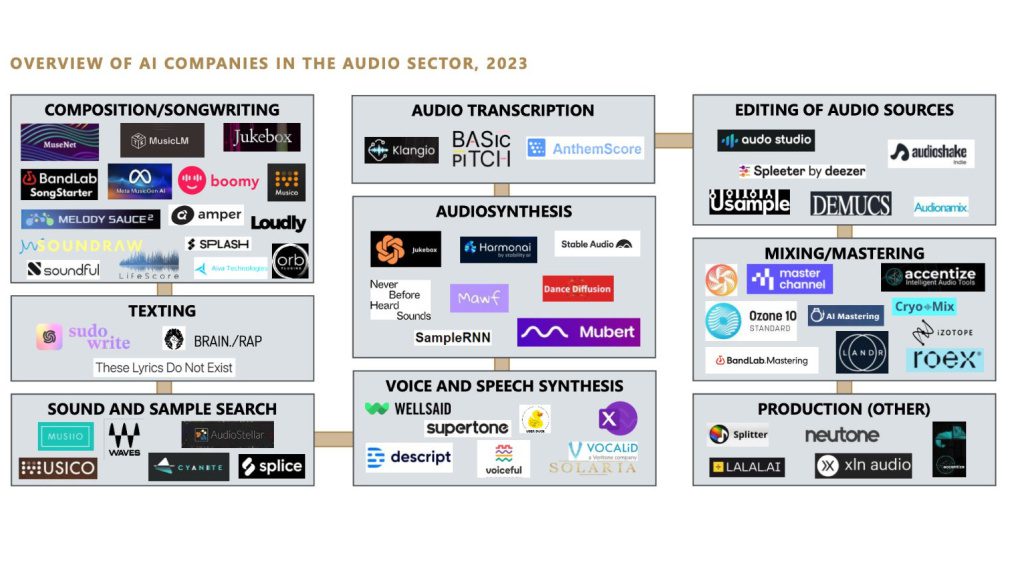
With the growth of AI within the music sector as aggressive as it is, the results of the GEMA AI study don’t exactly paint a pretty picture. The 27 percent drop in sales predicted for GEMA and SACEM members amounts to approximately € 2.7 billion.
The feedback from the study was resoundingly grave, too. Up to 71 percent of the members surveyed view this change in climate as so significant that they don’t see a future earning a living the same way they did in the music industry.
What’s even more telling is that by 2028, the global market share of generative music is set to grow from its current $300 million size to over $3 billion.
The Market Impact of AI is a concern, but there’s more to it…
According to the data from Goldmedia, 35 percent of the participants surveyed are already reliant on AI in one form or another. Furthermore, the amount who are under the age of 35 is significant too.
However, it’s important to distinguish the data between those who use AI-assisted software in the composition stage, the production stage, and the distribution stage, where AI is helpful in the marketing process.
All in all, of the survey participants who are already reliant on AI technology for their work procedures, 13 percent do so for creative applications, 19 percent use it in production, 13 percent use it in peripheral tasks like marketing, and 11 percent for other uses. Also, the use of AI processes varies completely amongst different music genres.
Overall, of those surveyed who already work with AI, 13 percent also use the tools for creative work, 19 percent for the production process, 13 percent for supporting measures such as marketing, and 11 percent for other use cases. The use of AI also varies greatly depending on the genre among those surveyed.
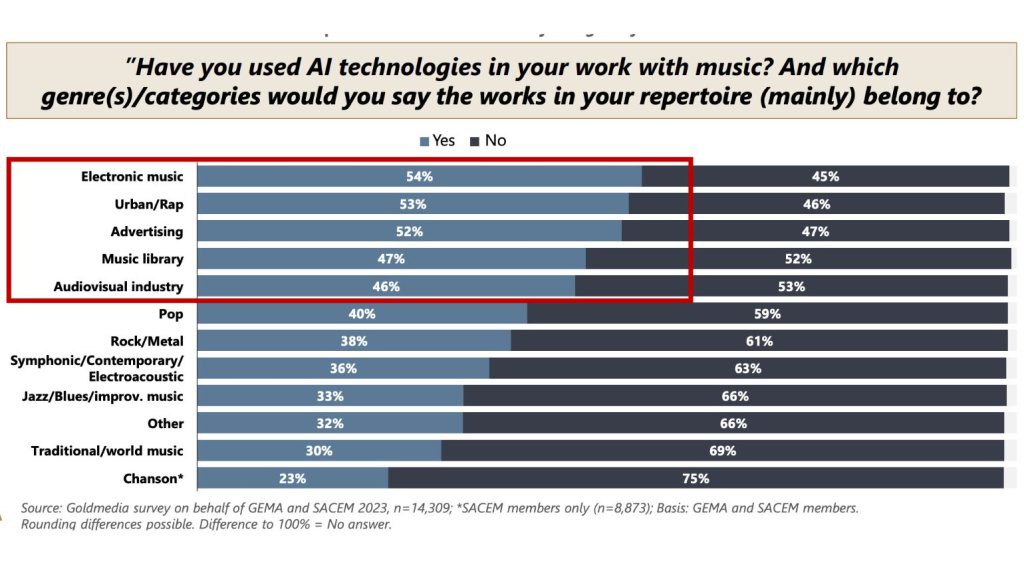
While 54 percent of those involved in electronic music are already using AI technology, this is followed closely by Hip-Hop and RnB, and then advertising.
It’s not a surprise that acoustic music styles like folk, world music, or chanson use AI in the production process up to 30 percent less than other genres. Overall, the GEMA AI Study has been revealing to say the least.
The Response to the GEMA AI study
The music rights organization GEMA protects the intellectual property rights of approximately 90,000 musicians in Germany. Meanwhile, a total of 210,800 are covered by its French equivalent, SACEM.
On one side, we are investigating the impact of AI technology within the music marketplace, which is already a widespread phenomenon. Meanwhile, we cannot lose sight of the main agenda of the GEMA AI Study.
Some believe that there should be a change in the legislature surrounding music rights, and are urging politicians to look after the rights of songwriters more carefully. At the moment, there is still no official regulation of music rights when songs are used in the process of training AI programs, and the financial ramifications of this.
Despite all the gripes that artists have with platforms like Spotify, there is no solution at present for dealing with the predicted torrent of AI-generated music on digital platforms.
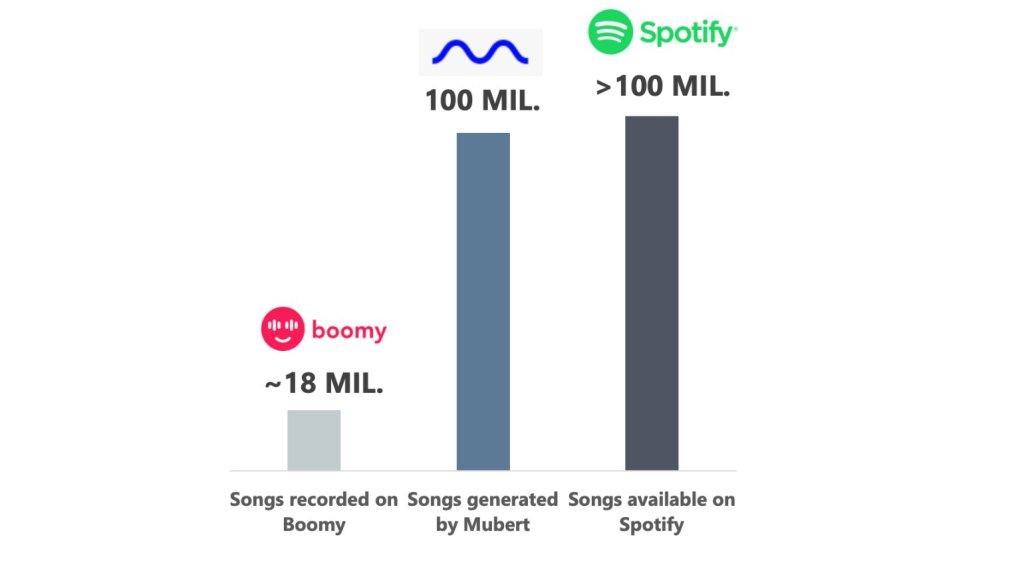
Currently, around 120,000 songs per day are published on platforms like Spotify, Apple Music, Tidal, Amazon Music, and Deezer, with an average of 100 million songs per platform catalogue.
Just for reference, since the launch of the app in 2017, Mubert has generated over 100 million songs as a single platform, and Boomy with an additional 18 million. Were these tracks to be published on platforms like Spotify, we’d see an even more rapid devaluation of the current marketplace where artists are already competing with podcasts and other content formats.
*Original article by Julian Schmauch on Gearnews.de
More about GEMA, SACEM, and the study:
- Official Press Release from GEMA
- Report from Goldmedia
- More about Spotify
5 responses to “GEMA AI study predicts a 30% drop in sales for producers by 2028”
You are currently viewing a placeholder content from Facebook. To access the actual content, click the button below. Please note that doing so will share data with third-party providers.
More InformationYou are currently viewing a placeholder content from Instagram. To access the actual content, click the button below. Please note that doing so will share data with third-party providers.
More InformationYou are currently viewing a placeholder content from X. To access the actual content, click the button below. Please note that doing so will share data with third-party providers.
More Information
 3,7 / 5,0 |
3,7 / 5,0 | 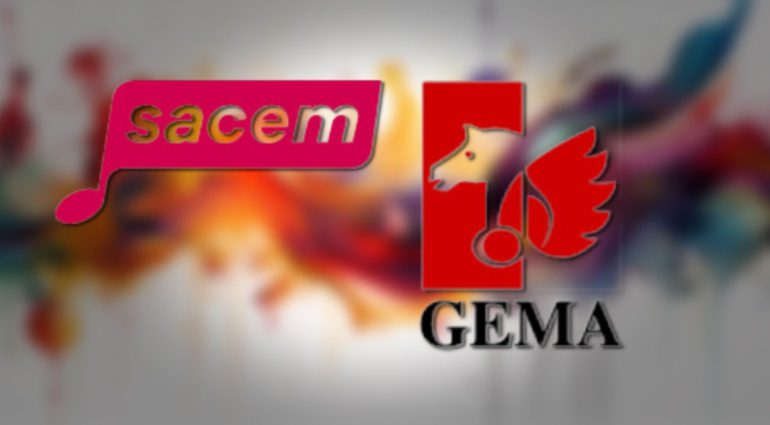

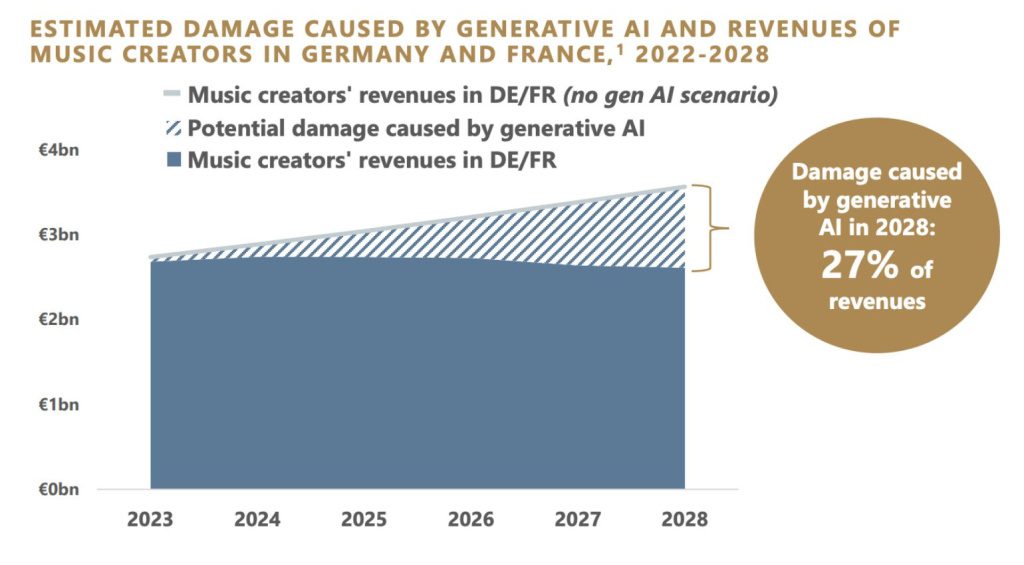
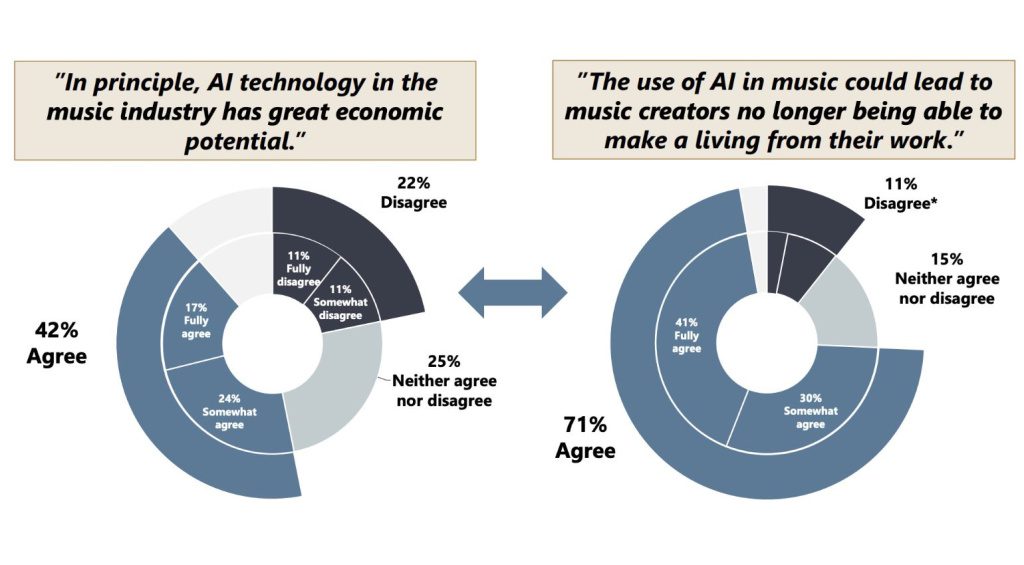
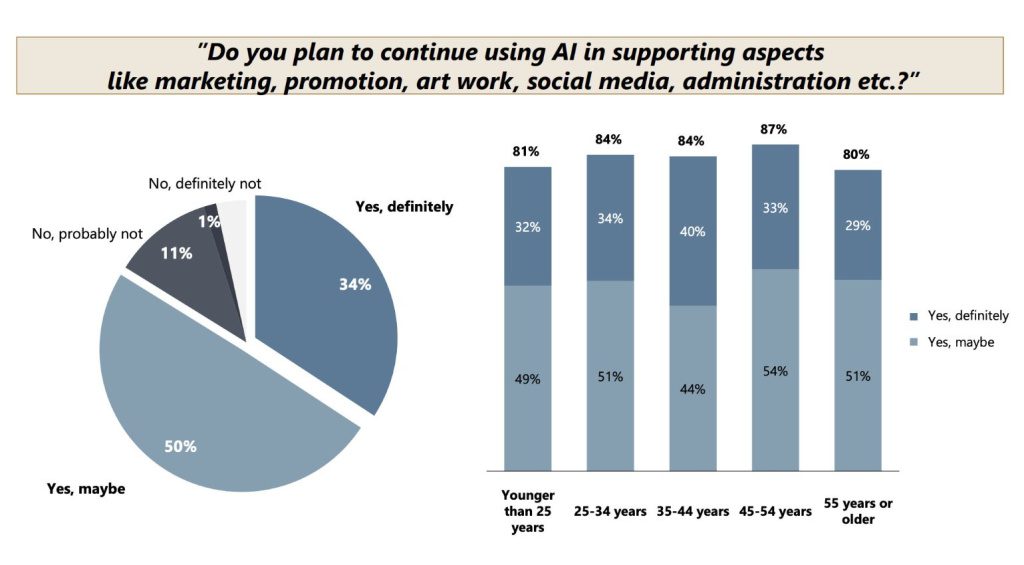
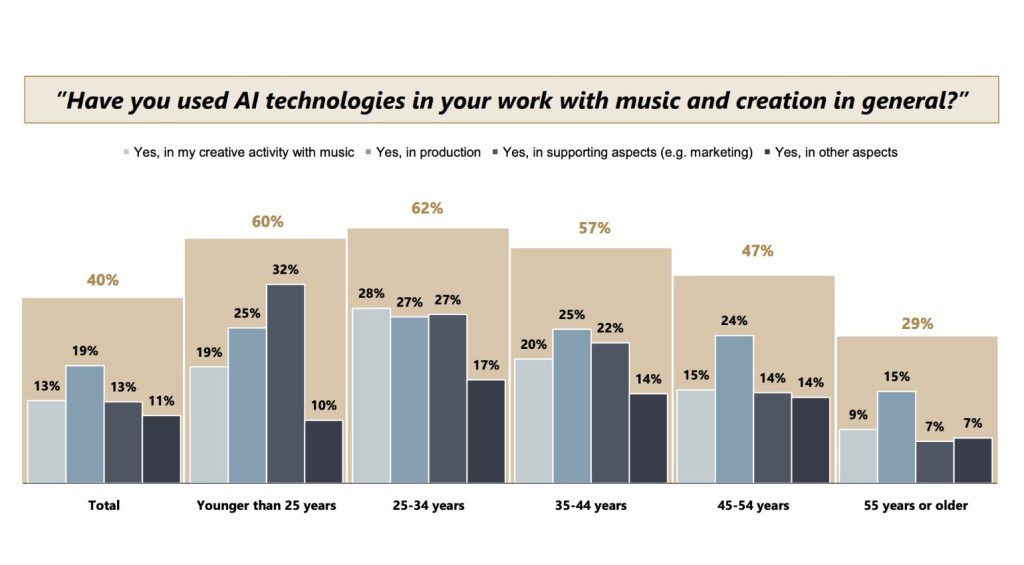


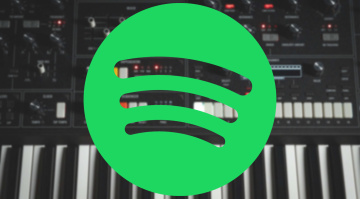


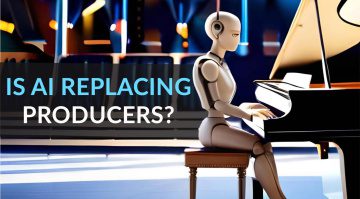
Ok, that’s the signal that the author companies are going to raise the fees for the artists with the excuse that they don”t receive enough money to run their business (aka paying the shareholders).
So, I hope this doesn’t come to pass as AI and GenAI are specifically good at helping replace mundane, but thought-needed tasks. An immediate example: “I need a dark moody reverb for the bass track of this composition, please provide me 3 options of settings using one a piece fo gear from and why you selected this gear and the settings.”
This would be great prompt engineering and while none of those choices may be what an engineer or producer uses in the end, they may provide great starting points. Even if this is built into another application and isn’t so ‘textual’ as I showed it as it is built into a DAW or other software, the person can’t easily be replaced in a useful way. They make the final call; their value goes up in knowing how to best take advantage of this new capability, while the time to do this goes down. So the rate may be a higher premium, but there is a cost savings in the time.
We’re dealing with this in my industry and the idea of AI/GenAI being a replacement for people doesn’t really seem to fly. At the very least, you need an experienced person to validate the AI model is producing what you want.
@Paul Boos It’s totally going to come to pass. If you are making beats, edm, or hip hop, you are going to be the first to get devoured by gen ai.
The only solution is strong regulations over the use of ai and keeping generated outputs in the public domain.
see the comment below yours by BG.
The people who support “real” musicians now will be the same people who support “real” musicians in the future. And the people who consume “fake” music now will be the same people who consume “fake” music in the future.
(just assume real and fake are always in quotes so I don’t have to keep typing it lol)
The people supporting real music want to listen to real music, and they want to support real musicians. That part of the market won’t disappear. They won’t change their values and start listening to fake music for no reason.
The people listening to fake music now will continue listening to fake music. People making real music might use AI in a positive way, whether creatively or as a utility, if at all.
So much of the fear of AI is the idea that you push one magic button and you get a good song and everyone likes the song and they all stop listening to, I dunno, King Gizzard, and they all start listening to Sexy Robot Ice B Stallion.
That’s not how it works.
The good part:
AI generated music and it’s impact on revenue earnings of “producers” and other successful industry “members” is:
The only humans left, making human music, will be actual musicians instead of those who are enabled by digital technology to make something that sounds like music, so they can become successful and famous, which has created an endless cycle of popular music that is anything but art and not a true reflection of the beauty of human made art. Most of popular music is phony baloney. It wasn’t always like this. Before digital technology, when humans had to learn to play instruments and sing in tune and in time, music was honest and it made far more of an impact on people’s emotions. I’m 25 years old and I’m old enough to know this to be the truth.
There will be a well defined separation in the future between real musicians who play instruments, read and write music, and that other thing – technology that generates music.
AI will finally place the value of human made art on humanity.